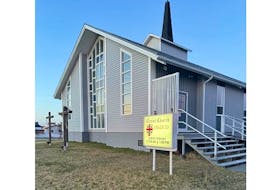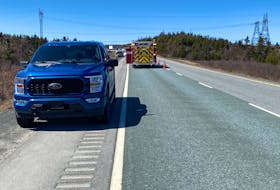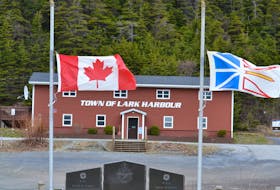The Insurance Bureau of Canada (IBC) says there’s no need to hit the brakes and postpone the Public Utilities Board (PUB) automobile insurance review hearings set to begin in this province on June 4.
Amanda Dean, IBC’s vice-president Atlantic, said the losers in any delay would be the drivers of Newfoundland and Labrador whose insurance premiums have been too high for too long.
The PUB’s hearings, she said, should continue as scheduled.
“Premiums are extremely high, claims pressures are extremely high, and claims drives premiums so that is not a really good recipe,” Dean said Wednesday.
“We think, and certainly government indicated that it wanted to undertake this review to relieve some pressure on consumers, it can’t happen soon enough.”
A group of personal injury lawyers in the province will ask the Newfoundland and Labrador Supreme Court to order a postponement of the PUB automobile insurance review hearings, arguing that the process is being rushed and does not ensure procedural fairness.
“Our group represents thousands of victims and virtually all consumers who could fall victim to a car accident through no fault of their own,” lawyer Valerie Hynes, a member of the Campaign to Protect Accident Victims, said recently.
“We fully support and are committed to the PUB review of insurance in Newfoundland and Labrador, but believe the current timeframe is completely inadequate to ensure a proper analysis.”
Insurance rates have steadily increased over the approximately14 years since the last review of the province’s insurance industry. Changes are expected to be introduced in the House of Assembly this fall following the PUB’s review process.
Last month the PUB announced it had completed its study into Newfoundland and Labrador’s automobile insurance industry and was ready to proceed with the hearings stage.
Dean said that while the PUB process has an aggressive timeline, all parties to the review have been aware of the timeframe from the beginning.
“This has been a process that’s been building, quite frankly since 2015 if you look back at the Liberal party platform before they formed government, where they talked about a review for auto insurance,” Dean said.
“More specifically, the PUB last August, they were given the terms of reference by the government to undertake the review, to collect information, and since October 2017 they’ve had on their website very specific dates and milestones for this review.”
The PUB’s mandate for the insurance review included the requirement that it conduct public consultations, as well as do two independent closed claims studies: one on the rising costs of automobile insurance claims, and a second specifically focused on claims related to taxi operators.
The lawyers group, however, maintains that while the hearings were first announced in the summer of 2017, most of the relevant reports have just been released for analysis and other important data is still not available from the PUB.
“Given the extensive review that was requested and the analysis the PUB agreed to provide, it will be virtually impossible to complete a thorough analysis, conduct research and provide recommendations for important public policy decisions by June 30,” the lawyers’ group stated in a news release.
“(This) impairs our right and opportunity to fully and meaningfully participate in the review process and is prejudicial to all Newfoundlanders and Labradorians.”
The IBC has made three key recommendations to the review: changes are needed to facilitate competition to allow more insurers in the province’s market; that more stability is required by implementing measures such as a minor-injury cap; and better procedures are needed to improve the health outcome of collision victims.
Dean admits there is some concern expressed about a minor-injury cap, but states that has been caused by misinformation put forth in the public domain.
“One of the biggest rumours is that the cap limits your ability to sue. It does not,” she said. “If you are involved in a collision, if you have a minor injury and it falls under the definition of a cap, you still have the right to sue.”
To complement the PUB’s industry review, the provincial government has also launched a public consultation process whereby people can complete a questionnaire online — until May 31 — at EngageNL.ca or share feedback via email to [email protected].









